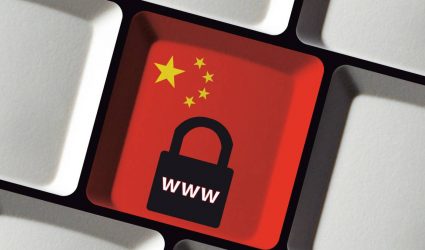China worst abuser of internet freedom as online censorship hits ‘unprecedented’ levels

(SCMP) – China was ranked the world’s worst abuser of internet freedoms for the fourth consecutive year by a US human rights organisation that also said global internet freedom was declining.
The annual report by Freedom House, based this year on a survey of 65 countries, warned that “governments around the world are increasingly using social media to manipulate elections and monitor their citizens, tilting the technology toward digital authoritarianism”.
China’s censorship had reached “unprecedented extremes” this year, and the internet in the country was the least free of all surveyed nations, including Iran, Syria, Cuba and Vietnam, the report said.
The Washington-based non-profit organisation found the decline in internet freedom came as Beijing improved its control of domestic information ahead of the 30th anniversary of the Tiananmen Square crackdown in June and amid nearly five months of increasingly violent anti-government protests in Hong Kong.
Besides keeping its own citizens under surveillance, Beijing also stepped up its efforts to influence the outcomes of elections overseas, the report said.
Report co-author Adrian Shahbaz said it was alarming to see how China was “weaponising its own content dissemination systems” to manage internet discourse over sensitive topics such as the Hong Kong protests and the NBA scandal, where a tweet by the Houston Rockets’ general manager in support of Hong Kong protesters sparked calls for a boycott of league telecasts and consumer products and a state backlash in China.
“Right now, there really aren’t a lot of checks and balances or even accountability faced by Chinese media outlets, including social media companies, for whatever practices they implement, particularly to censor political, social and religious speech,” Shahbaz, the organisation’s research director for technology and democracy, said.
“We saw countless examples of disinformation pumped out about the Hong Kong protesters – not only directed for domestic Chinese audiences or those in Hong Kong, but also around the world.”
The organisation’s researchers wrote that China had become “a leader in developing, employing and exporting social media surveillance tools”. Authorities in China had developed “a host of invasive tools, both low- and hi-tech, for repressing any behaviour that strays from what is acceptable under Xi Jinping Thought – the doctrine of China’s authoritarian leader”, they wrote.
China has long regulated the internet through its “Great Firewall”, which blocks access to selected overseas websites on the mainland and slows down cross-border internet traffic.
But Beijing’s control over the internet has intensified under President Xi Jinping, who has stressed the need for the ruling Communist Party to tighten its grip on online communications to ensure social stability.
Xi has sought to rally global support for “cyber sovereignty” – the idea that countries have the right to regulate the internet within their own borders.
As China broadens its censorship of social media and expands government oversight of Chinese technology companies, information about politically sensitive events, including the Tiananmen Square crackdown and the pro-democracy movement in Hong Kong, often has been scrubbed from China’s internet.
The watchdog said in the report that Beijing had clamped down further on avenues for digital mobilisation and activism by increasingly shuttering individual accounts posting “harmful” content on the social media platform WeChat, and were using domestic companies to surveil Chinese users.
Big data policing systems reportedly being built by China’s provincial governments could be used against ethnic groups, including Muslim minorities, the report said.
More than one million Uygurs and other minorities are estimated by rights groups to be held in mass internment camps in Xinjiang in the country’s west. Beijing has denied the accusation, describing the camps as “vocational training centres” set up for counterterrorism purposes.
Shahbaz said it was clear that China’s social media companies and outlets could be “misused whenever China feels its own political sensitivities are under threat”, foreshadowing concerns over Beijing’s exports of 5G technology and surveillance tools.
The researchers added to counter global internet freedom restrictions, policymakers should take steps such as enacting data privacy legislation and regulating the use of social media for surveillance, and public awareness of government censorship and surveillance should be improved.
The report noted that China, along with Russia, had been implicated in cyberattacks and information warfare against other nations, including a February cyberattack in Australia ahead of federal elections there.
“While authoritarian powers like China and Russia have played an enormous role in dimming the prospects for technology to deliver greater human rights, the world’s leading social media platforms are based in the United States, and their exploitation by anti-democratic forces is in large part a product of American neglect,” researchers wrote.
Freedom House said freedoms on the net also had decreased in countries such as Sudan, Kazakhstan, Brazil, Bangladesh and Zimbabwe. A record 47 of 65 countries had arrested internet users for political, social or religious speech, it said.
“Many governments are finding that on social media, propaganda works better than censorship,” Freedom House president Mike Abramowitz said.
“Authoritarians and populists around the globe are exploiting both human nature and computer algorithms to conquer the ballot box, running roughshod over rules designed to ensure free and fair elections.”
China blocks 23 per cent of 215 accredited foreign news sites, watchdog says

